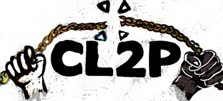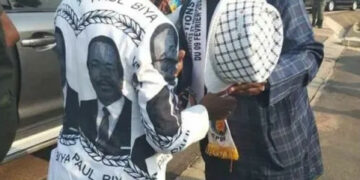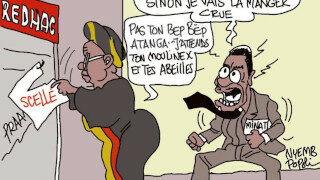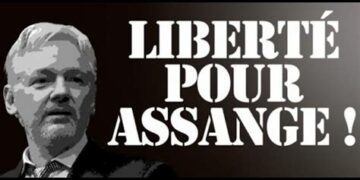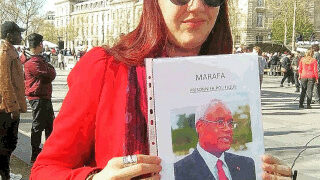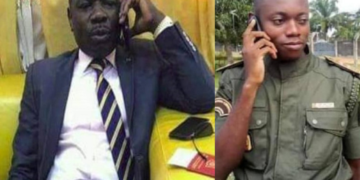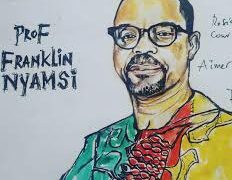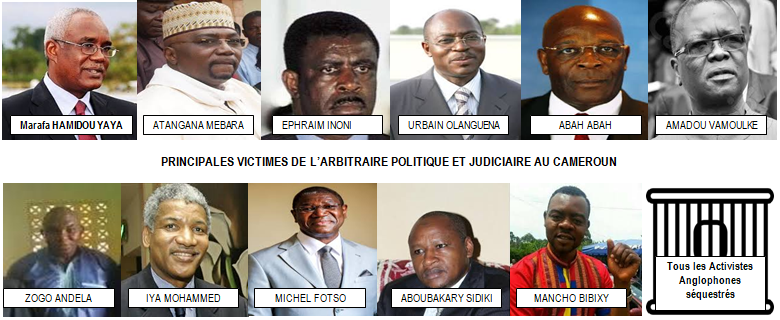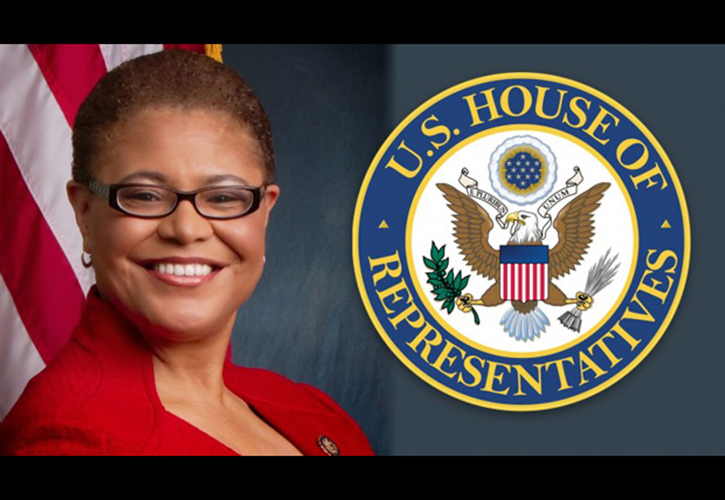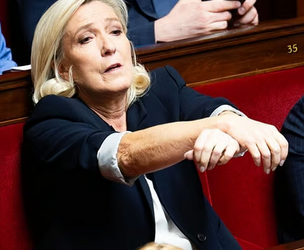Francis Laloupo’s Le Grand Debat of December 9, 2019 was very informative on the treatment of political prisoners in Yaoundé.
Maître Hakim Chergui, who happened to represent Achille Zogo Andela, political prisoner since 2011, opened up the debate by demonstrating the regime of Yaoundé’s cannibalistic carceral ideology, derelictions of duties and a de facto internal outlaw since it refuses to apply rightfully strict recommendations of the United Nations turning into a thuggish state. A thing Sebastien Nadot in his book about political prisoner, Amadou Vamoulke, of who he has written a book talked about systematic injustice supported by a democratic country called France.
The thing to know about political prisoners in Cameroon before we know anything else is that both Zogo Andela and Amadou Vamoulke are denied, even, basic medical attention to attend to his deteriorating medical condition.
Joel Didier Engo, President of the CL2P, goes on to further argues that, despite his façade of affability and sophistication which might even make him easier to like than his political prisoners, the reality is that president Paul Biya is running a vengeful patriarchy and a roguish state that practices what Achille Mbembe calls “conviviality.” Conviviality is a form of “banality of power,” a closeness or a form of intimate tyranny between rulers and the ruled complicating binary conceptions of oppressor and oppressed and resulting in extreme powerlessness.
 Beneath, these practices of conviviality, however, the reality is that Paul Biya and his regime, are leading others political prisoners such as Marafa Hamidou Yaya, Zogo Andela and Amadou vamoulke into a slow death. This is a carceral system when 90% of prisoners have not even gotten their days in court.
Beneath, these practices of conviviality, however, the reality is that Paul Biya and his regime, are leading others political prisoners such as Marafa Hamidou Yaya, Zogo Andela and Amadou vamoulke into a slow death. This is a carceral system when 90% of prisoners have not even gotten their days in court.
A chief tenet of this lethal carceral ideology is “disproportionate impact.” The idea mandates that guilt of people incarcerated does not have to be proved to exist, complicating the work of human right organizations, such as the CL2P, to take the necessary reparatory measures.
Unfortunately, as Joel Didier Engo acknowledges, the voices of the sane and the moderate are usually crushed by legal despotism where extreme tactics operates on its own logic and trajectory — until chaos and cannibalism finally lead even to the extremists’ own suicide. This is where he claims that we should not be silent about this regime of exception that Achille Mbembe calls necropolitics.
At stakes, the cases of political prisoners in Cameroon are not simply parables of injustice.
It’s more like a lesson in availability bias where we often have trouble seeing problems straight, some people even enjoying these gruesome public spectacles that – reflect a repressed, collective bloodlust and do not belong in the realm of a civilized society – therefore, how a plausible notion becomes difficult to dislodge once it takes root.
Hence, while on some level, judges, lawyers, prison guards, human right activists are doing what they think they are supposed to do, these political prisoners are the ones getting dragged through the wringer, injured in ways that can never be repaired and for that we must never be accomplices of a tyrannical regime and a false belief that such flash punishment will serve as a deterrent. It is the easy way out: instead of looking at the structural changes we have to make as a society to wipe away this tyrannical and institutionalized form of legal despotism.
By Olivier J. Tchouaffe, PhD, Spokesman of the CL2P
